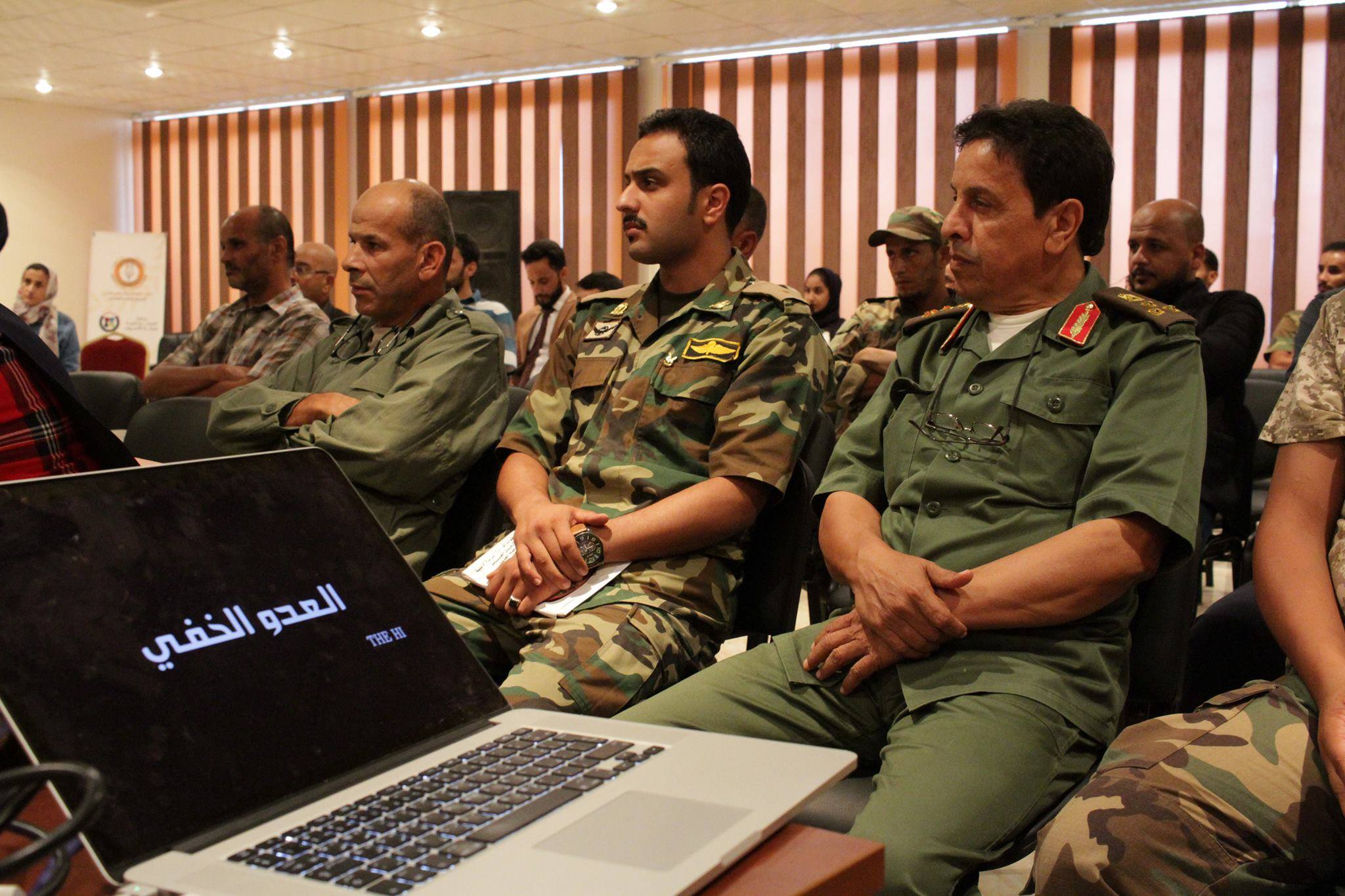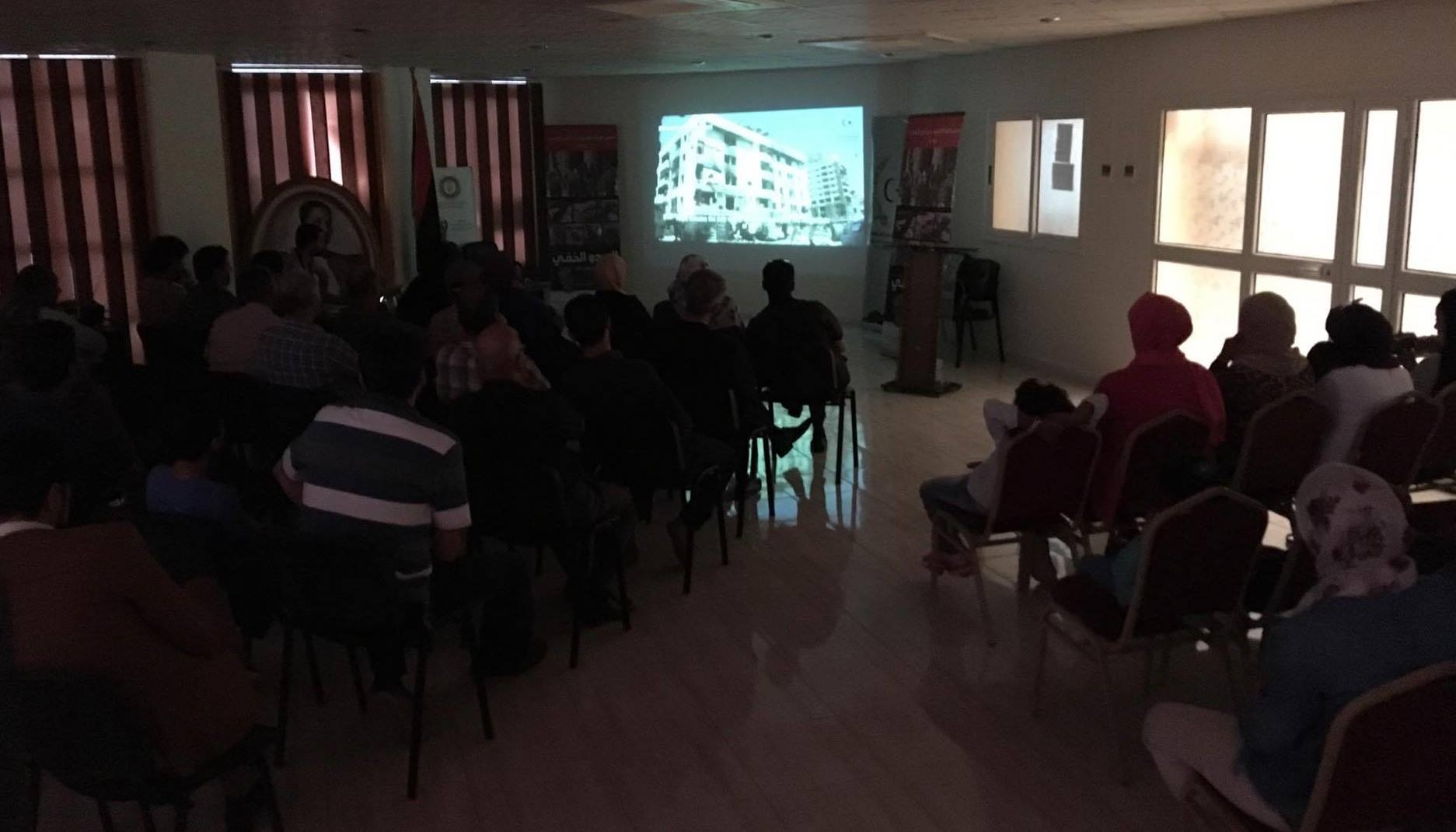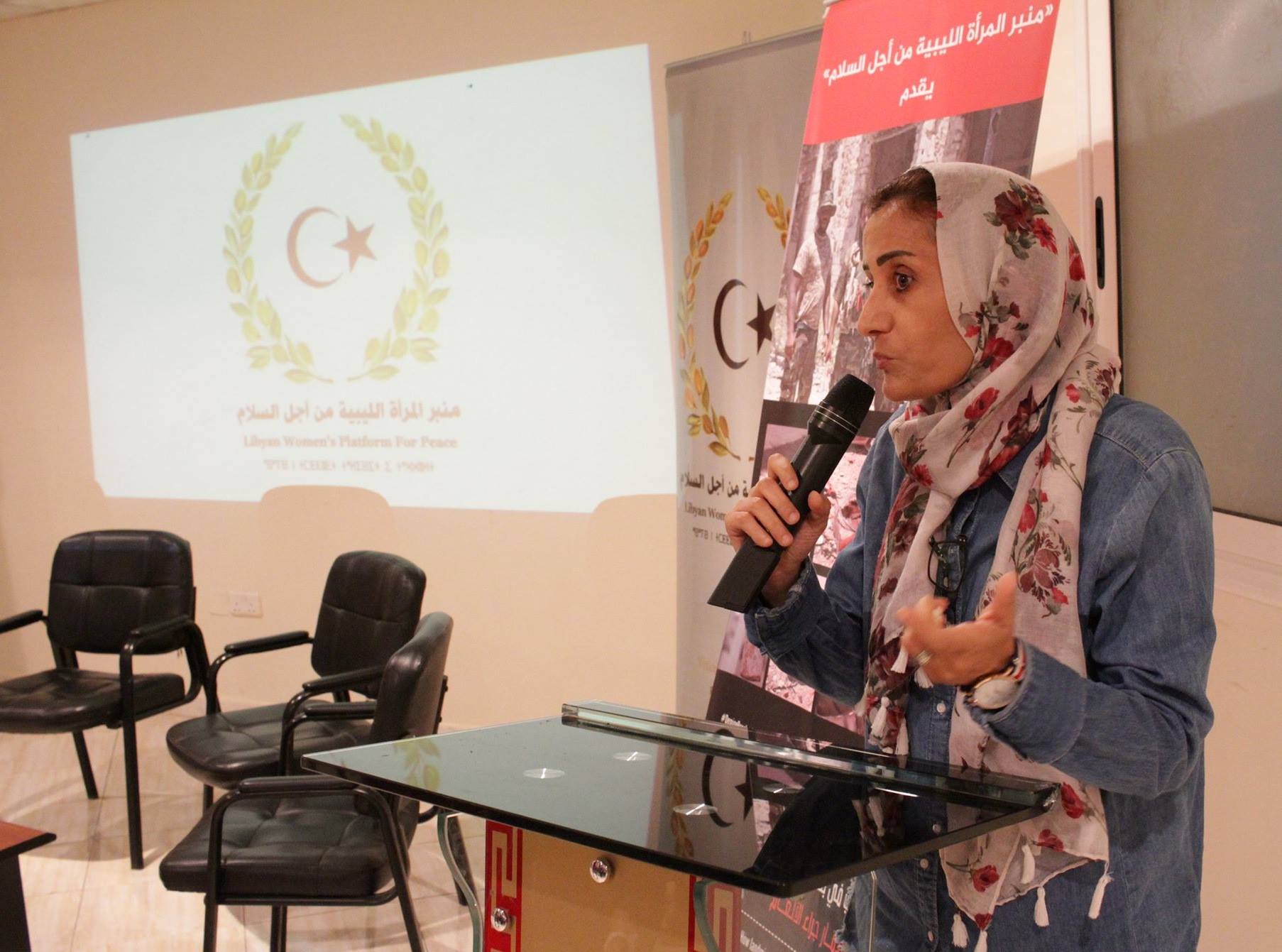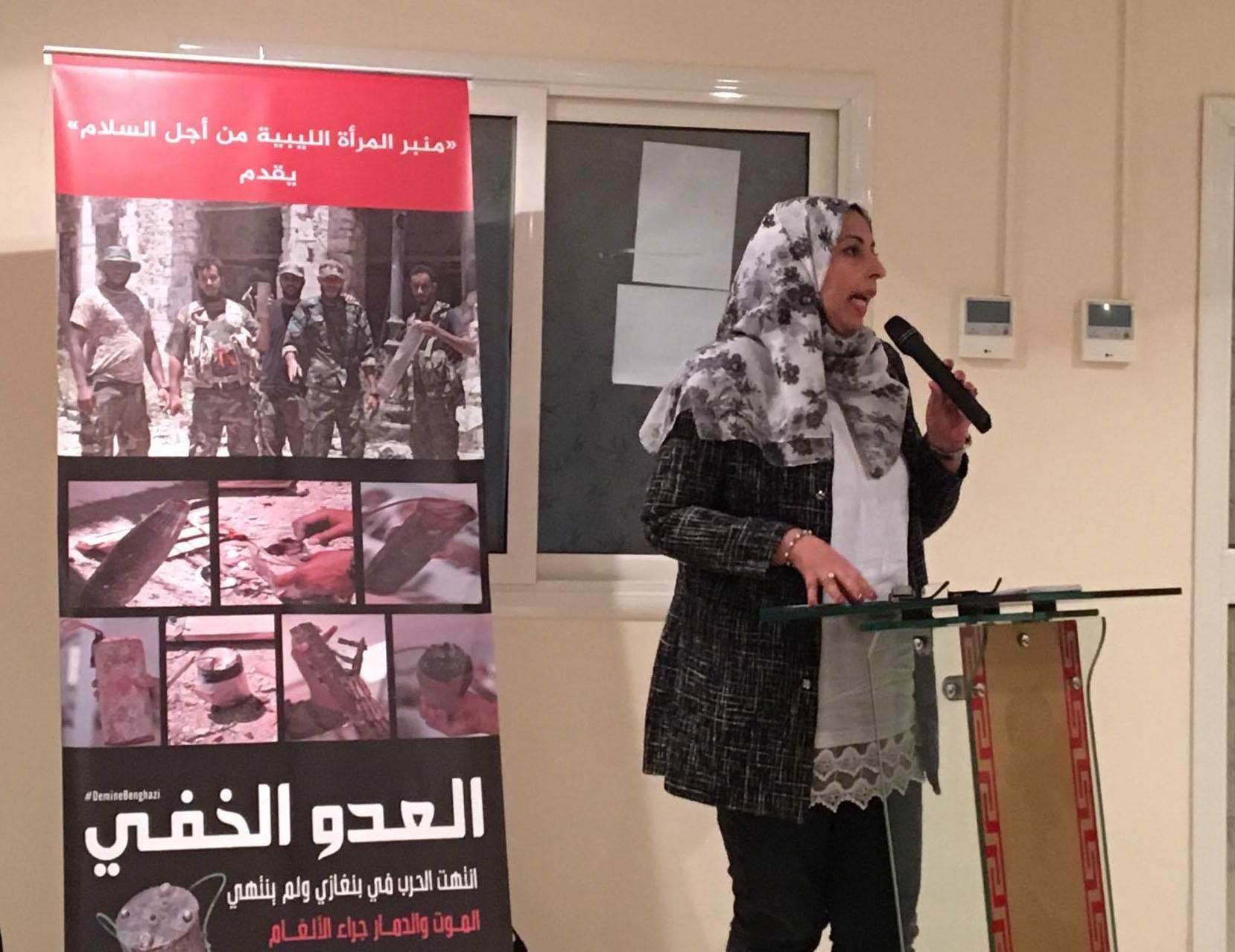Press Release: Official Screening of the Documentary «The Hidden Enemy»
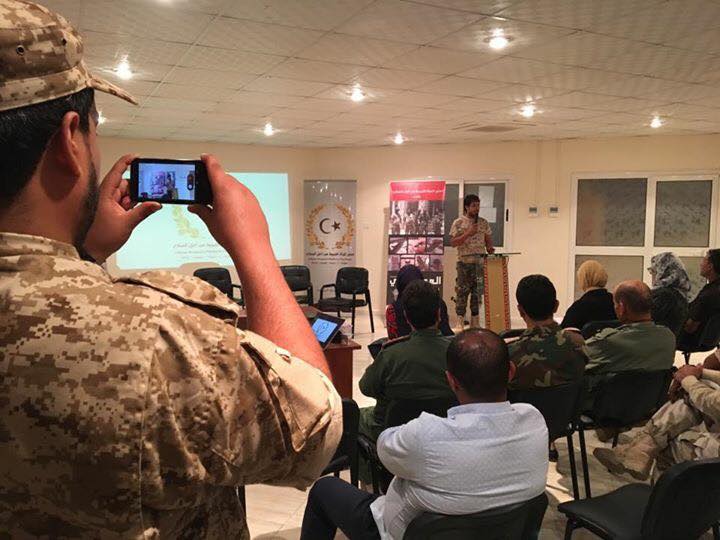
Benghazi, Sept. 25: The Libyan Women's Platform for Peace (LWPP) organized a screening of "The Hidden Enemy", a documentary highlighting the deadly danger of landmines left by armed groups in the residential neighborhoods of Benghazi, Libya's second largest city, and how military engineering personnel lack the resource and technical capabilities for demining.
The event was held at the Wahabi Al-Bouri Cultural Center in Benghazi on the occasion of the International Day of Peace, and attended by the commander of the Libyan Army Military Engineering, Brigadier General Ramadan Al Awami, and the commander of the Military Engineering Unit in charge of mine clearance, Abdul Salam Al-Missmari, the Culture Undersecretary, Ali Al-Obeidi, as well as legal experts, human rights defenders, and media and civil society activists.
The documentary, produced by the Libyan Women's Platform for Peace and filmed by journalist Khadija al-Amami, shows the dangerous situation in Benghazi due to the large number of mines planted by armed groups in residential areas, including homes, schools and public facilities.
“With only our limited capabilities and without international intervention it will take not less than four years to demine Benghazi’s mine contaminated neighborhoods," said Abdul Salam al-Missmari during the panel discussion session. He pointed out that mines have killed several members of the Military demining unit, adding: “In a recent month, 26 civilians were killed by mine while 37 were wounded.”
al-Missmari called on the international community to help and protect civilians from mines and to support military engineering with modern equipment. "This is a humanitarian duty; it should not be confused with political or military conflicts in the country," he said.
While accurate statistics on human casualties are not available, concealed mines and abandoned munitions continue to kill and maim, and pose a grave threat to public safety as more internally displaced people, in the absence of awareness of the dangers of landmines and the limited means for dealing with them, try to return to their liberated areas before securing them.
The LWPP considers the problem of landmines to be a fundamental issue, posing a threat to the public, the environment, and the future of the country. Zahra Langhi, Founding Director of LWPP, says: "We at the Libyan Women's Platform for Peace believe that landmines and explosive remnants of war not only threaten the safety and lives of civilians, but also a threat to peace itself and lead to a never-ending war in Benghazi.” Langhi stresses: "No peace nor reconstruction without mine action.”
The LWPP calls on local and international mine action actors to work towards an effective and coordinated response to the problems of landmines and explosive remnants of wars in Benghazi and Libya in general.
The LWPP, launched on the 7th of October 2011, has experience in constituency building and mobiliظation, network facilitation and management, as well as successful advocacy and lobby activities in the fields of women’s political leadership and participation. The LWPP has also been involved in constitution building & peace building process efforts regarding the election of women parliamentarians, and creating platforms of dialogue with different Libyan stakeholders on peace & security.
